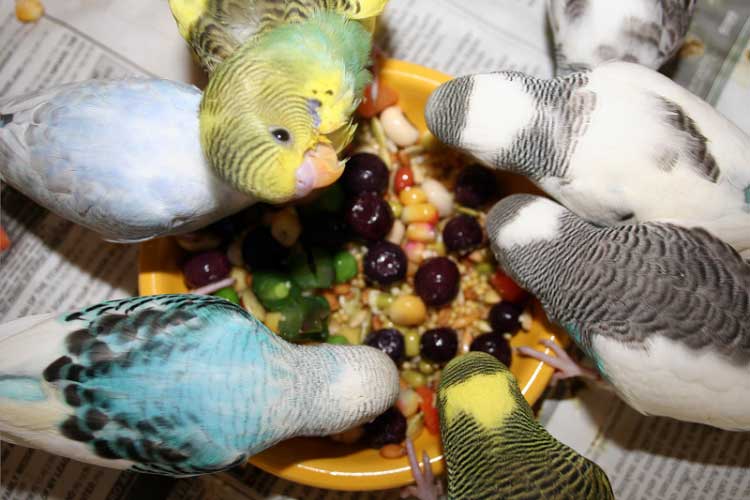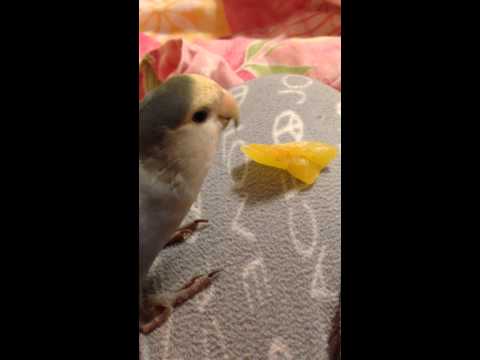Unlike wild parakeets, pet budgies can be fussy eaters. Despite their health benefits, they may refuse certain fruits, vegetables, and nuts.
So, can budgies eat dried fruit? The short answer is yes. However, it depends on the dried fruit. Some fruits are safe, but some aren’t. Also, you should know the correct portions and how often to feed them. Feeding your budgie dried fruit should be a treat—not a dietary staple for your feathered friend.
In this article, you’ll learn which dried fruits parakeets can and can’t eat, the correct portions, and how to feed them. Also, I’ll highlight the health benefits of incorporating dried fruits into your bird’s diet.
Can you feed dehydrated fruits to budgies?
Dried fruit can be a tasty treat for your budgie. Nevertheless, consider it a special treat rather than a meal replacement because of the high sugar content.
Most people tend to shun dried fruits as a supplementary diet for parakeets. But here’s the thing. Dried fruit is as nutritious as fresh ones.
The best part? Dried fruit offers the same nutrients in a much smaller package. In fact, dried fruits contain three and a half times the vitamins, minerals, and fiber of fresh fruits by weight. So, a sprinkle of dried fruit has a larger percentage of the recommended intake of vitamins and minerals. (healthline.com)
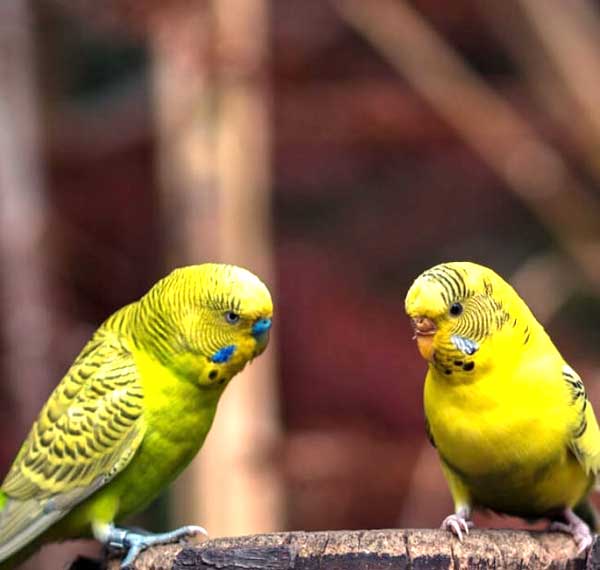
Large quantities of dried fruit can affect the digestive system and upset the stomach. So when introducing your pet bird to new dried fruits, it’s essential to do so gradually. This will give your pet bird time to adjust to the new food and ensure they don’t have any adverse reactions.
But don’t only focus on dried fruits. Expand your budgie’s dietary horizons by incorporating fresh fruits, fresh vegetables (especially leafy greens), and seed mixes. These are also excellent sources of natural vitamins and minerals that help them grow into healthy birds. Also, ensure your bird has plenty of fresh water on hand.
But don’t feed your budgie any fruit at hand. While fruits are a natural element of a budgie’s diet, some types of fruits are not suitable for your parakeet.
Many delicious dried fruits are available, including squash, citrus fruits, melons, pomegranate, and berries. Grapes are also a budgie’s favorite food. While it’s okay to offer these treats from time to time, your budgie shouldn’t eat too much sugar or anything high in fat daily.
Don’t offer pits and certain fruits to parakeets without removing the pits or seeds first. Remove seeds from fruits, such as pears and apples, and pits from cherries, plums, peaches, apricots, and nectarines. Such fruit seeds and pits contain traces of a cardiac-toxic cyanide compound. (sciencenotes.org)
Also, read the label carefully when shopping for dried fruits. Ensure it doesn’t have sulfur dioxide, flavor, preservatives, or added sugar. Also, never add honey or sweeteners.
Do Budgies Like Dehydrated Fruits?
Dehydrated fruit is a healthy and delicious treat that your parakeet will love! Just ensure to offer it in moderation.
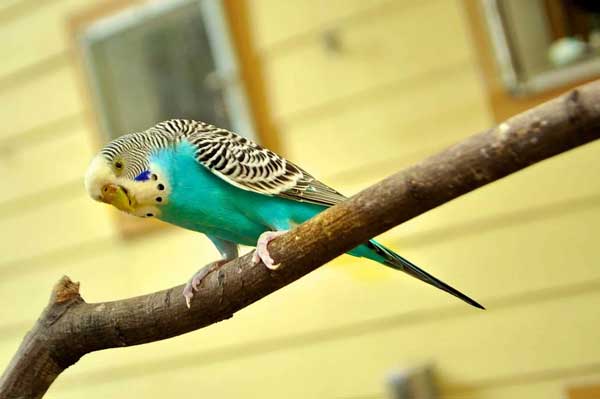
Too much can lead to obesity, indigestion, and other health problems. When choosing dried fruit for your parakeet, look for varieties that are unsweetened and free of sulfites.
Health benefits of budgies eating dried fruits
Dried fruit is a delicious treat for your budgie because it’s packed with nutrients and natural sugars. They’re rich in vitamins, minerals, and antioxidants that can help boost your budgie’s immune system and overall health.
In addition, dried fruits are a great way to add variety to your budgie’s diet. They provide different textures and flavors your parakeet may not have had before.
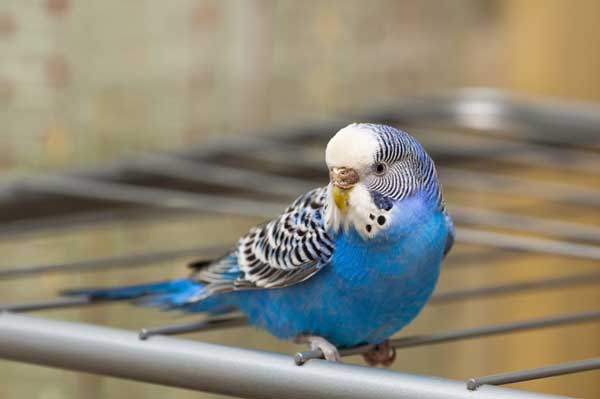
However, always consult a veterinarian before introducing any new foods into your budgie’s diet, as some dried fruits may be toxic to them.
How much dry fruits should budgies eat?
Just like with any treat, moderation is key. Give your budgie no more than 10% of his daily food intake in the form of treats. Fresh fruits, vegetables, and seed mixes should make up 90%.
Considering budgies eat 15-16 grams of food, you can give 1.5 to 2 grams of dried fruit as a treat. Also, feed two times daily.
The best snack time is after a birdbath or during a training session.
It’s best to start slow with one or two pieces of dried fruit. You can gradually increase the amount over time if your parakeet seems to enjoy it without experiencing any negative side effects.
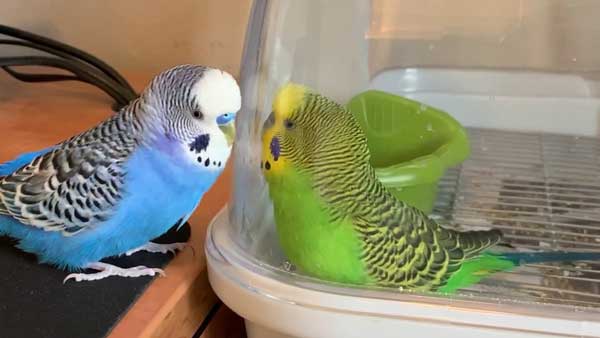
For example, if he has diarrhea or other stomach issues, the fruit is likely too rich for his digestive system. Avoid it until later on when his body has adjusted more thoroughly.
And as always, make sure fresh water is available at all times! Also, variety is essential. Therefore, for a balanced diet, incorporate veggies or leafy greens now and then.
How do you prepare dried fruit for budgies?
The best way to prepare dried fruits for budgies is to soak them overnight. Soak them in clean water and rinse to remove bacteria.
Next, chop up the dried fruit and mix it with leafy greens and vegetables. Budgies love munching on these types of snacks, and they provide lots of good nutrition at the same time. A varied diet is key. So mix up what you offer your bird to keep him happy and interested in his food!
Can you feed dried fruits to baby budgies? If so, how?
Yes, you can feed dried fruits to baby parakeets. However, you should mill it into a “porridge blend.” This ensures the right consistency and that the baby budgie gets all the nutrients it needs.
Video Of a Budgie Eating Dried Fruit
Preserved Fruits: Why you should steer clear
Most people preserve dried fruit with sulfites, which help prolong shelf life. Also, they help inhibit gut bacteria. (researchgate.net)
Unfortunately, most budgines have dangerous allergic reactions to these chemicals. If you must buy preserved dried fruit, check for the “sulfate-free” label.
FAQs
Now you know all about budgies and dried fruit. So, let me highlight some of the most frequently asked questions regarding parakeets and dried fruits.
Apple seeds have traces of cyanide that are fatal to your bird’s kidneys. If you must feed them an apple, remove the seeds first. Never leave a whole apple to a budgie.
Avocado isn’t good for budgies. It contains persin, a fatty acid-like substance that causes heart and respiratory damage if ingested.
Conclusion
Dried fruit should never be the primary food source for your budgie. However, it can be a special treat that provides extra nutrients without causing a sugar rush.
It’s important to note that dried fruit is not a suitable substitute for fresh vegetables and other healthy treats. You’ll want to offer plenty of fresh veggies regularly, so your bird gets everything he needs!
Do you know if your budgies can eat chocolate or peanuts? Read our articles about it to learn more.
